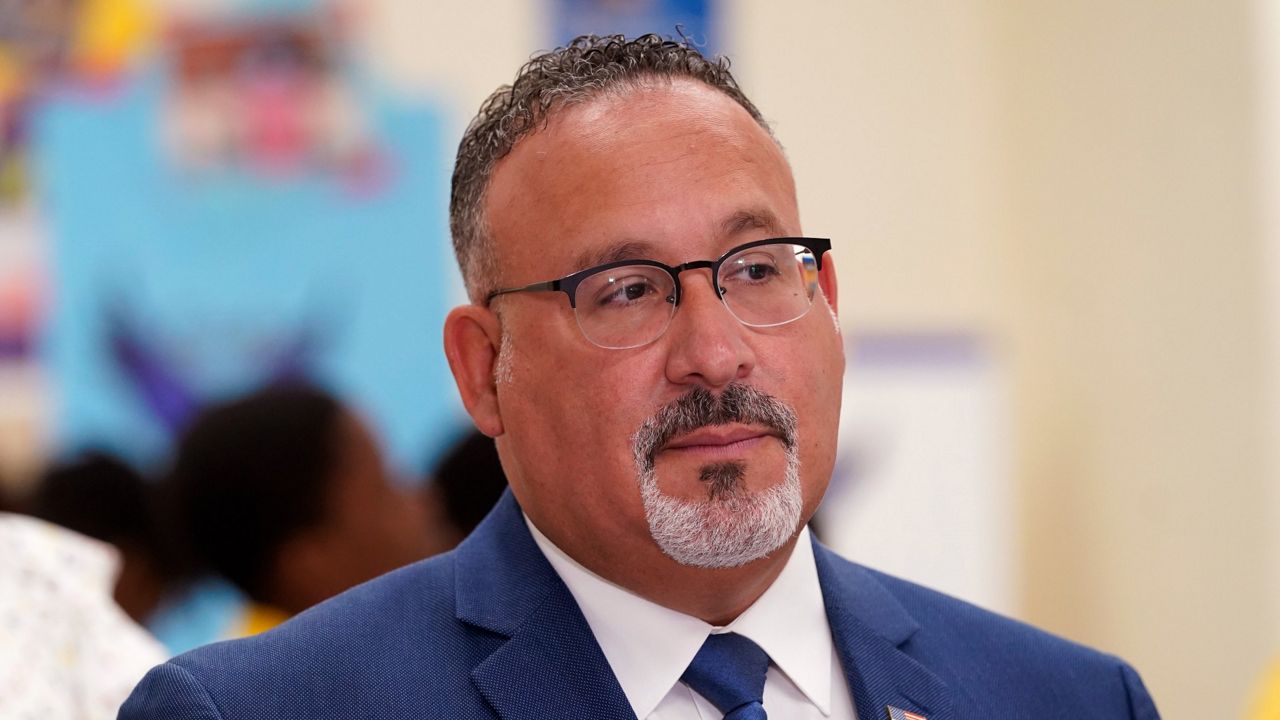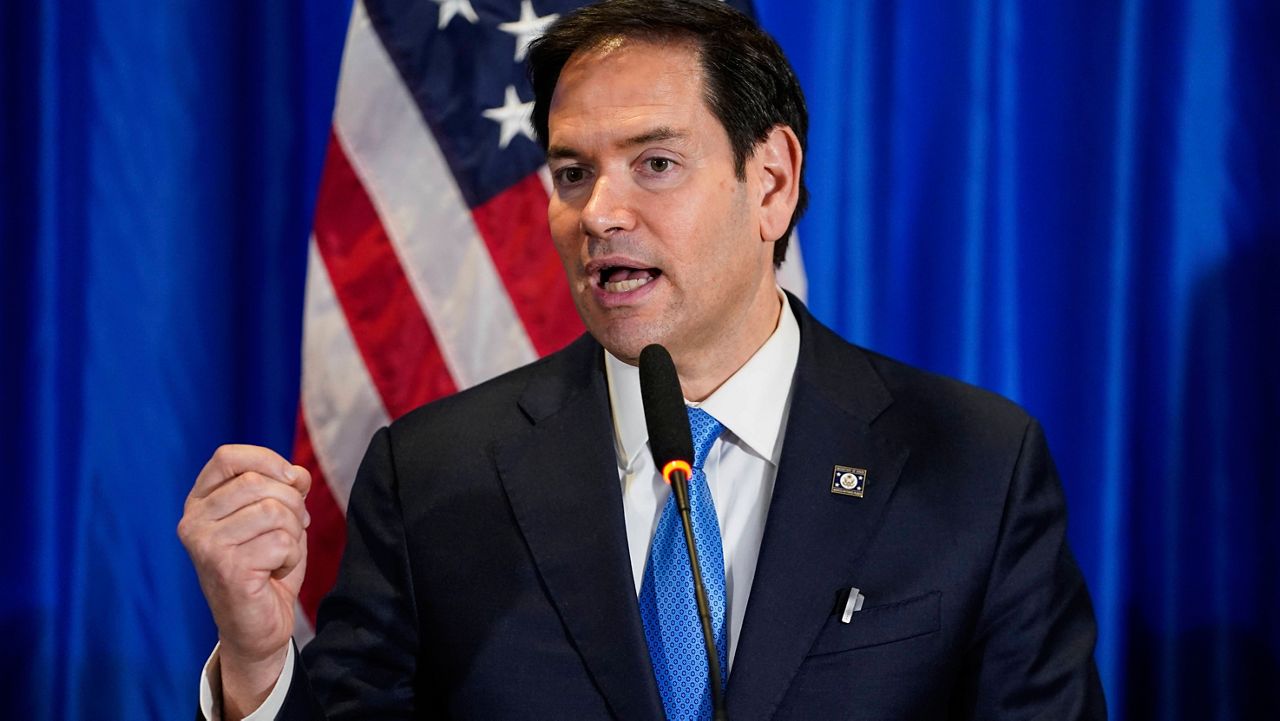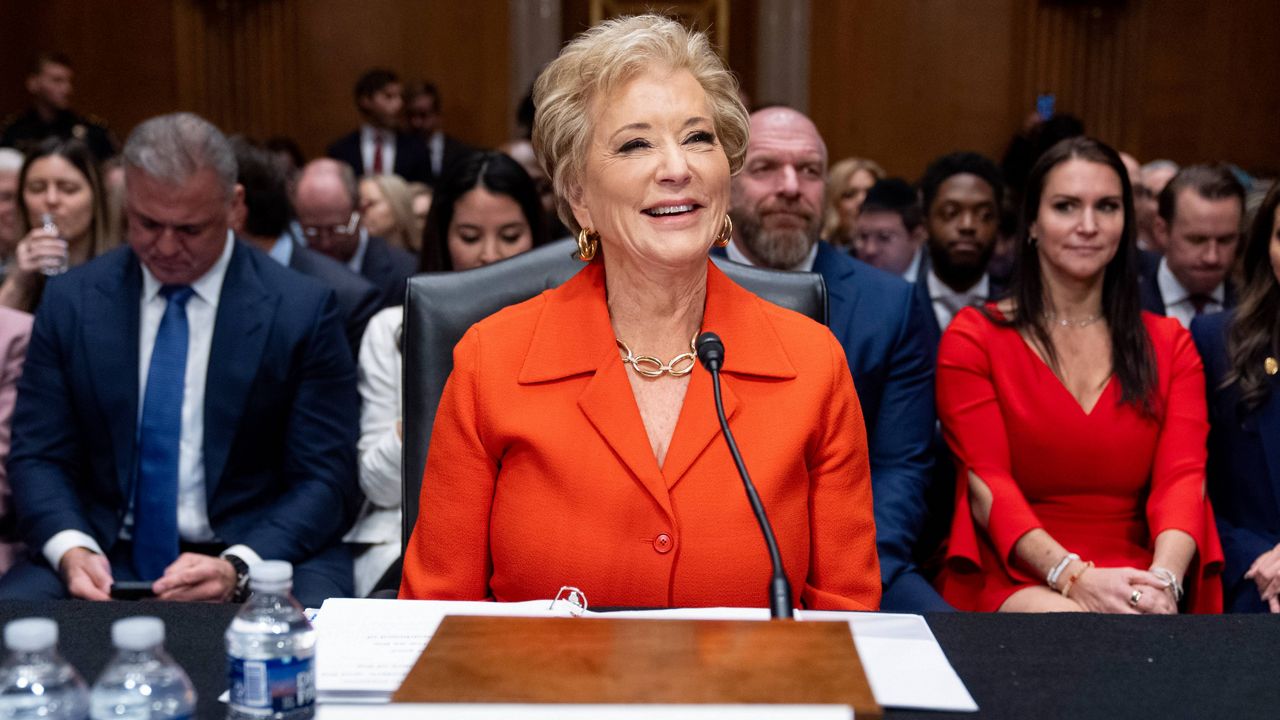The Biden administration will announce in the coming days whether it will extend a pause on student loan payments, Education Secretary Miguel Cardona said Sunday.
What You Need To Know
- The Biden administration will announce in the coming days whether it will extend a pause on student loan payments, Education Secretary Miguel Cardona said Sunday
- The announcement might also include whether President Joe Biden will sign an executive order forgiving thousands of dollars in debt per borrower
- There has been a pause on student loan payments since Congress passed the CARES Act in March 2020 in response to the COVID-19 pandemic that shut down businesses and resulted in millions of layoffs
- The latest pause is set to expire Aug. 31
The announcement might also include whether President Joe Biden will sign an executive order forgiving thousands of dollars in debt per borrower. The president has been under pressure from fellow congressional Democrats to cancel up to $50,000 in debt, although multiple reports have indicated Biden has been considering a more modest plan for $10,000 in forgiveness.
There has been a pause on student loan payments since Congress passed the CARES Act in March 2020 in response to the COVID-19 pandemic that shut down businesses and resulted in millions of layoffs. Trump extended the moratorium twice, and Biden has extended it four times.
The latest pause is set to expire Aug. 31.
In an interview with NBC’s “Meet the Press” on Sunday, Cardona said: “We know Aug. 31 is a date that many people are waiting to hear something from. We've been talking daily about this, and I can tell you that the American people will hear within the next week or so.”
Cardona did not provide any other details about the upcoming announcement, but said, “From day one, we've been really focused on making sure we're protecting our students and our borrowers.”
Since taking office, Biden has canceled $32 billion in student debt, mostly for students who were defrauded by schools or participated in the Public Service Loan Forgiveness Program, which cancels debt for those who work in public service.
Last week, for example, the Education Department announced it will cancel all remaining federal student loan debt — nearly $4 billion — for students who attended the for-profit school ITT Technical Institute. The Education Department accused ITT of misleading students about its academic programs and aggressively pushing students into risky loans, and the school abruptly shut down all its campuses in 2016.
According to the Federal Reserve, 48 million Americans owe a combined $1.75 trillion in student debt.
Earlier this month, a group of House Republicans introduced a bill to act as an alternative to Democratic proposals on student loan reform. The legislation would focus on borrowers “most in need” by capping the amount borrowers enrolled in income-driven repayment plans pay to the loan’s principal and 10 years of interest, offers a way for borrowers to pay down their principal if their payments for 10 years only covered interest, eliminating interest capitalization that can cause balances to balloon and more.
“The Biden administration has been engaging in mass student loan forgiveness behind Americans’ backs without the authorization of Congress,” the bill’s sponsors — Reps. Virginia Foxx of North Carolina, Elise Stefanik of New York and Jim Banks of Indiana — said in a news release. “ … . Instead of placing the burden of this broken student loan system on the shoulders of American taxpayers, we are introducing this bill to fix the system.”
Ryan Chatelain - Digital Media Producer
Ryan Chatelain is a national news digital content producer for Spectrum News and is based in New York City. He has previously covered both news and sports for WFAN Sports Radio, CBS New York, Newsday, amNewYork and The Courier in his home state of Louisiana.







